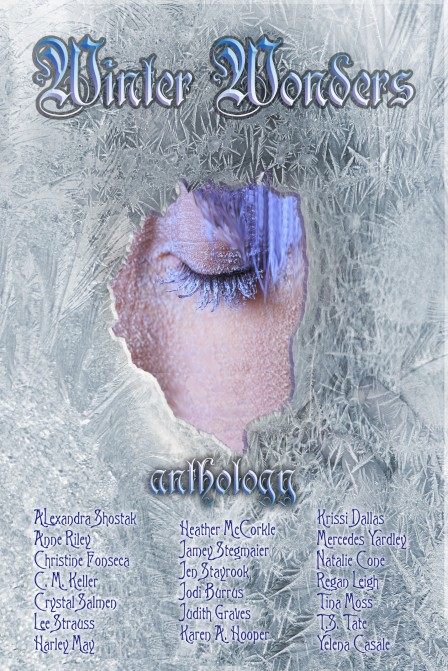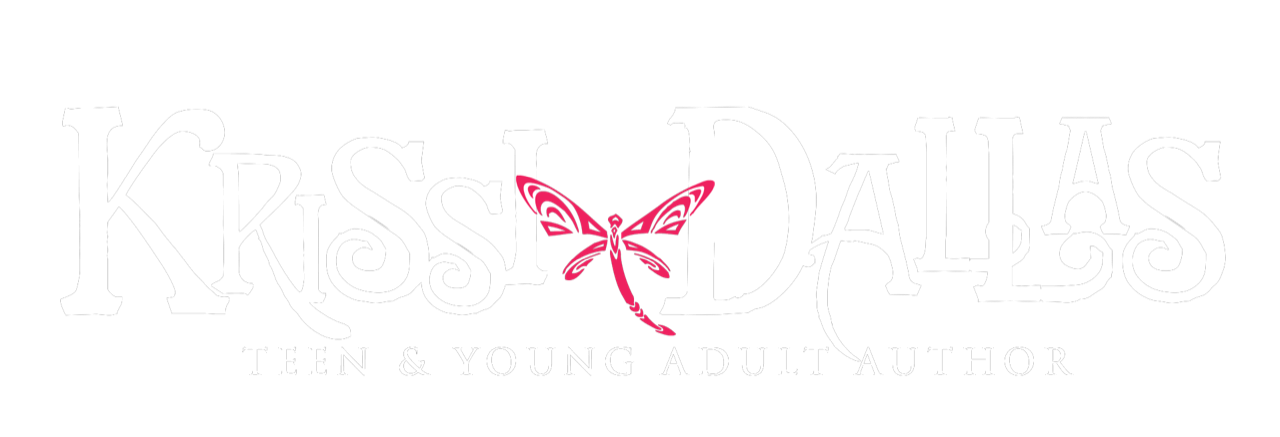Welcome to my new blog and new feature post… Write Stuff Wednesday! In the future, I will try to use Wednesdays to post general writing exercises, tips, and industry insights that I’ve gained over the last five years as an author. I consider myself a lifelong student of my craft, so I’m constantly learning new things from others and trying to become a better writer with every project!
Today, I want to focus on short story tips I learned through my latest project, “Pink Snow,” which releases in December as part of the Winter Wonders Anthology. Click HERE for more information about the anthology and how to order your copy.
When I was invited to participate in the Winter Wonders Anthology, my first thought was, “HECK YEAH, sign me up!” I loved the idea of contributing to a good cause (proceeds go toward Literacy.com) and especially challenging myself to write a new project. But then my immediate second thought was, “Holy Beep, how do you write a SHORT story?” If you know me and my books, you know that there’s nothing SHORT about them (except maybe Whitnee herself). I write epic stories with a lot of intricate characters, plot points, and multi-tiered conflicts. At first, I had no idea how to condense my ideas into a 5,000-10,000 word long story… My summer was spent researching and gathering advice from other authors and here are some tips that helped me!
Krissi’s Personal Tips for Short Story Writing
1. “Get in late and get out early.”
This piece of advice was actually given to me by my former editor and now published author, Jessie Sanders. It made total sense to me and honestly helped me as I determined my starting and ending place in “Pink Snow.” The idea is to let your reader jump in late to a bigger story and end it before it gets to another level of “complicated” – which usually means ending pretty quickly after a climactic moment. I think this has to be done carefully. You want your reader to feel like they understand the characters enough to care about their adventure, but you also want the reader to walk away with enough resolution. Background info necessary to these particular characters and this particular place has to be built in with quick doses throughout the story.
2. Every aspect of the story should build characterization.
If you’re like me and you want people to feel connected (even in love) with your characters, then every moment, every scene and every line of dialogue should be dedicated to enriching the characters’ lovable or stirring qualities and flaws. No moment can be wasted in a short story and even transition scenes should be limited and quick. Don’t waste time on words that don’t draw the reader in more closely to the characters.
3. Establish your conflict, setting, and story question immediately.
In the excerpt posted below from the opening of “Pink Snow,” you’ll find that not only are my two characters introduced immediately through dialogue and narration, but main conflicts in the story are brought up immediately, which points to the story question – that is, the question(s) the reader should be asking that should, likewise, be answered by the end of the story. (For how to come up with your story question and introduce it, read this article HERE.)
So, for example… the main conflicts of “Pink Snow” are: a) There’s a snowstorm in their small town. b) They’re stuck at school and must get home. c) There’s a definite observation on Sophia’s behalf of Books’s level of mystery and appeal. d) While there is a level of affection and friendship between these two, there does not seem to be a committed romance.
That means the story questions become: a) Will they make it home safely (and how)? b) Is there something romantic going on between these two characters? c) If so, will this adventure through a snowstorm help them discover more about each other?
All of these things were established in the first page of the story in order to keep a fluid purpose and flow as I build to the two back-to-back climactic moments that answer the story questions and resolve the conflicts.
4. Give your short story a nice, round beginning and ending.
This is one of the most challenging aspects of short story writing. There should be something at the end of the story that ties it back to the beginning. It can be an object, a thought, a line of dialogue, an epiphany, a thematic element… anything that would make the story rounded out where the end somehow reminds you of the beginning. It can be overt or subtle. This gives the story a complete feel, even though you are “getting in late and getting out early.” I can’t share my “Pink Snow” example of this (because it would reveal something in the end), but you can read it to find out!!
For examples of well-written, classically celebrated short stories, I recommend checking out Shirley Jackson, O. Henry, Gary Soto, and Ray Bradbury… just to name a few of my favorites that my students and I read together!
And now, for the opening to “Pink Snow”….
(Copyright Krissi Dallas, 2012)
 “You know, it starts in your fingers and your toes. Numbness, burning, tingling…” His voice came from just behind me, higher and slightly to my right—his favorite place to sneak up on me. I tore my eyes away from the irritated text message I was composing and rolled them in his direction.
“You know, it starts in your fingers and your toes. Numbness, burning, tingling…” His voice came from just behind me, higher and slightly to my right—his favorite place to sneak up on me. I tore my eyes away from the irritated text message I was composing and rolled them in his direction.
“What starts there?”
“Frostbite.” I could hear the amusement that always seemed to color his voice. “You’ve been out here for awhile. Are you tingling yet?”
Oh, I was tingling. But not from frostbite. This whole situation was encroaching on my comfort zone. But that wasn’t his fault.
I took a deep breath and glanced longingly at the parking lot one last time. No red truck with the “Springtown Porcupines #21” decal on the bumper had shown up today. And there was already a growing line of cars in front of the school. Parents were arriving in droves to pull their kids out before the weather got worse and before the residents of our small town could no longer make it home safely on the back roads. The stage had been set for the perfect snowstorm. Blustery cold wind, ominous snow clouds, spastic Texans buying out the last water bottles and canned goods from our one local grocery store… It was nine in the morning, but it looked like the color had been drained out of the world. A few flirty snow flurries teased us as they blew around, but didn’t stick.
“You know, it’s too bad snow isn’t pink,” I mused. “Can you imagine how beautiful the world would be covered completely in sparkly, pink snow? Like cotton candy.”
He let out a spurt of laughter. “That has got to be the girliest thing you’ve ever said.”
I shrugged. “Pink makes me happy.”
“I think that’s obvious.” I felt a playful nudge on my right shoulder, which was currently padded by my favorite pink and white coat.
Dropping my phone back into my coat pocket, I muttered, “I just wish I could’ve stayed home this morning.” This was perfect weather for snuggling up in my bed with a good book. Or maybe even taking a glorious nap so I could dream about Connor.
“You should’ve. I warned you yesterday that it would be worse than the forecasters originally predicted.”
I finally turned around to find Books watching me through dark-rimmed glasses, hands shoved into the pockets of his black coat. Sometimes I wondered what he would look like without the glasses. He was tall, with spiky dark hair and a decidedly loveable smile—not a total loss of good looks, according to my best friend, Kerra. But his quirky aloofness kept him from being too crush-worthy—also according to Kerra. Oh, and his name was Books. His real name. Yeah, that wasn’t confusing at all in a school environment.
He kept pace with me as I trudged against the biting wind back toward the school front doors. “I’m five months away from graduating with perfect attendance since kindergarten,” I reminded him. “And that means scholarship money. If I had stayed home, it would’ve counted as an absence.”
“But there’s a hundred percent chance of snow about to hit this town at any moment. Surely they wouldn’t count that against you. Especially since Principal Pennington will be announcing early dismissal and start sending the rest of us home in about 33.7 minutes.” He held the door open for me and we both stumbled in, red-cheeked.
“Doesn’t matter. I still have to show up to keep my perfect record.”
“Oh, yeah. How could I forget about your perfection complex?” He was teasing, but it made me bristle every time. Perfectionism came at a cost that I was sure laid-back, carefree Books Porter could never understand.
“And how could I forget you’re not from around here, Yankee?” I tossed back at him.
